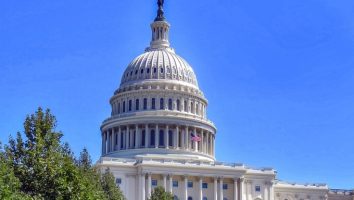The story is well known. In 1993, after numerous rejections, entrepreneur Haim Saban brought his Japanese concept for a kid-targeted action-packed soap opera to then fledgling net Fox Kids. The show, Mighty Morphin Power Rangers, became an instant hit and pop culture phenomenon, and was ultimately sold, along with Fox Family Worldwide, to Disney in 2001. So it seems things have come full circle, as the first property handpicked for representation by new licensing venture Saban Brands is none other than the spandex-sporting superhero series, repurchased from Disney for a reported US$100 million in mid-May.
To date, a full 700 half-hour eps, two theatrical films and an estimated US$5 billion in consumer products sales surround Power Rangers. But the IP has slipped from public consciousness, thanks to reduced visibility both on TV screens and retail shelves. So the question now is how is Saban going to breathe new life into the flagging property.
Saban Brands would not confirm or deny the purchase price of the Power Rangers, but it is believed the company is operating with an estimated US$500-million bankroll with the express intent to acquire and manage more IPs. ‘Obviously, Power Rangers is a very natural first brand for us,’ says Elie Dekel, CEO of Saban Brands, who last year left his post as EVP of licensing and merchandising at Twentieth Century Fox to take the job.
Dekel also had a hand in managing the original Power Rangers’ rollout in the early ’90s. ‘We want to return it to its glory,’ he says. And to do that, re-runs of the original series will move from their current once-a-week spot on Disney’s ABC Family to a daily slot on Nicktoons US this fall. In addition, Saban has enlisted original executive producer Jonathan Tzachor to start production on 20 new episodes that will bow on Nickelodeon proper starting in Q1 2011.
‘We are immediately going into production,’ says Dekel. ‘We are ramping up to produce new episodes indefinitely.’
On the management level, Dekel will be joined by a newly appointed trio of execs, including longtime Disney Consumer Products VP of retail development and licensing Nina Leong as Saban’s new SVP of licensing. As well, David Shuman, who previously served as a VP of finance for the North American divisions of Live Nation, has been named VP finance. Rami Yanni is now SVP of legal and business affairs.
And with the Power Rangers back on air everyday, Saban Brands will be focusing on crafting an extensive licensing program. While still in the midst of evaluating existing licensing agreements around the world, longstanding partner Tokyo-based Namco Bandai has announced it’s retaining global master toy and video game rights for the brand.
Bandai intends to roll out new and expanded Power Rangers lines in 2011, and Dekel says his next priority is to establish a coherent publishing program, followed by apparel and social expressions.
While a new style guide is being formulated, the property’s core look and content won’t be changing too much. ‘Kids evolve and we want to make sure it’s relevant to the world they live in,’ says Dekel. ‘But we are still going to have all of those ingredients that make Power Rangers so special.’
Saban Brands will be debuting its new vision for the brand at Licensing Show this month and Brand Licensing in London this fall. Additionally, Dekel says the firm is working on ‘three other potential transactions’ with a keen eye on acquiring kids IPs as well as fashion and design properties.
‘We are interested in other kids brands,’ says Dekel. ‘We are identifying brands that are authentic and have a resonance and consumer appeal that we think can benefit from a new strategy and almost bottomless resources.’





















